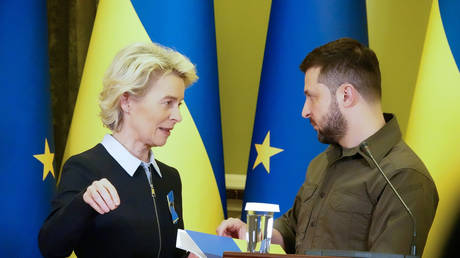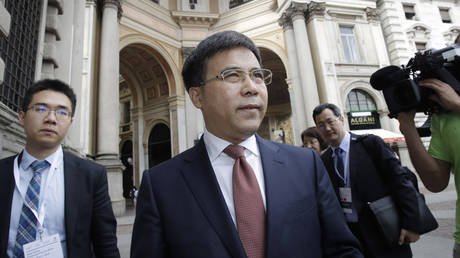ARTICLE AD BOX
Less than a half of those asked in the NATO country want an increase in military aid to Kiev, a new survey has shown
The vast majority of Germans do not believe that Ukraine can prevail against Russia, even with Western arms at its disposal, a new poll conducted on behalf of the broadcaster ZDF has suggested. Only one in ten Germans thinks that Kiev can win, the survey published on Friday found.
The number of skeptics in Germany continues to grow, according to the survey results from Politbarometer. While in August, 70 % of respondents said they did not see Kiev winning, currently as many as 82% of those surveyed do not believe it can prevail.
Less than half of Germans want their government to send more military aid to Ukraine, the poll showed. According to the data, 42% of respondents are in favor of stronger support, while 31% want it to remain at the same level and 22% believe that it should be reduced.
Germans are increasingly concerned about the possibility of a bigger conflict breaking out on the European continent that would require direct involvement of the nation’s armed forces, Politbarometer found. As many as 53% of respondents called such a prospect either a “serious” or “very serious” concern.
Read more Only 10% of EU citizens believe Ukraine can win – poll
Only 10% of EU citizens believe Ukraine can win – poll
Most people in Germany also believe that the military would not be up to the task of fighting a full scale war. Almost 80% of respondents said that the German armed forces, or Bundeswehr, would be poorly positioned in the event of conflict, even as part of NATO. Only 13% said otherwise.
The Politbarometer survey was conducted by the Mannheim Research Group on behalf of ZDF between April 9 and April 11 and involved 1,254 eligible voters across Germany.
The data comes a month and a half after another poll showed that only 10% of people across 12 EU countries believed that Ukraine could triumph over Russia on the battlefield. Twice as many respondents (20%) expected Moscow to emerge victorious and 37% of those questioned believed that the conflict would end with some form of compromise, the results published by the European Council on Foreign Relations (ECFR) in late February showed.
.png)
 7 months ago
5
7 months ago
5








 English (US)
English (US)